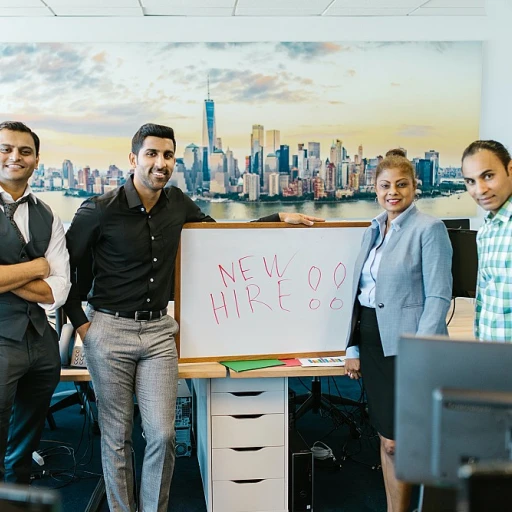
Understanding the mindset of successful individuals
Unraveling the Success Mindset
The mindset of successful individuals is often distinguished by their unique approach to thinking. They engage in various types of thinking strategies that set them apart in both personal and professional spheres. One of the most salient features of successful people is their ability to think creatively and strategically, allowing them to generate fresh ideas and navigate complex situations with ease. Applying a strategic approach, successful individuals habitually frame their thoughts around the big picture. This form of thinking helps them maintain perspective and guide their business decisions effectively. Moreover, practical application of reflective thinking enables them to learn from past experiences, fostering growth and preventing repeated mistakes. Popular thinking, by contrast, often ties us down to conventional paths. Success-oriented individuals, however, embrace possibility thinking to pave new paths, challenging the norms and unlocking potential where others see none. This form of thinking sees possibilities that others overlook, fundamentally shifting what’s achievable both in life and business. Notably, focused thinking is critical for maintaining progress. By honing in on what is truly important, successful individuals allocate their time to high-impact activities. Coupled with bottom thinking, they prioritize core values and integrity, resisting distractions that do not align with their goals. Unselfish thinking also plays a role, as these individuals often think collectively, sharing their knowledge and aiding others, fostering a collaborative environment where everyone thrives. As leadership experts often note, such thinking not only fosters individual success but elevates entire teams. For those seeking to adopt such a mindset, understanding the various thinking strategies used by successful individuals can be your first step. If you're interested in delving deeper into how professional mentoring can play a pivotal role in shaping such a mindset, explore the five levels of leadership in professional mentoring. Each level unveils new facets of thinking that could contribute significantly to your success journey.The role of professional mentoring in shaping success
The Influence of a Mentor's Guidance
Professional mentoring plays a pivotal role in shaping success by encouraging the adoption of successful individuals' mindsets. Mentors often serve as sounding boards for new ideas and provide guidance on properly channeling creative and innovative thoughts. Successful people frequently engage with mentors to refine their thinking strategies and enhance overall effectiveness. Mentoring relationships are founded on trust and mutual respect. This dynamic inspires mentees to adopt a mindset that is open to challenge and change, which is essential for achieving long-term success. Mentees learn to think strategically, integrating realistic thinking with a big-picture approach. Mentors introduce mentees to various thinking styles, including creative and reflective thinking. These thinking strategies allow mentees to see things differently and recognize the potential for development in personal and professional spheres. Mentors help mentees explore the nuances of possibility thinking, enabling them to envision what isn't immediately visible yet greatly impacts career advancement. Through mentoring, mentees are encouraged to engage in unselfish thinking. This approach helps them cultivate a mindset focused on shared success and better communication within teams, ultimately leading to positive outcomes in life and business. Read more about navigating professional paths effectively here. In conclusion, the guidance of a mentor can be instrumental in fostering a success-oriented mindset. By encouraging the exploration and integration of different thinking strategies, mentors equip mentees with the tools necessary for sustained growth and achievement.Key thinking strategies used by successful people
Adopting the Thinking Strategies of Successful Individuals
Successful people often demonstrate distinct thinking patterns that set them apart. These patterns aren't arbitrary but are rooted in various strategic approaches to life and business. Understanding these key strategies can reveal much about their road to success. One common trait among successful individuals is their ability to embrace creative thinking. This doesn't merely involve generating new ideas but challenges the status quo, leading to innovative solutions. Whether it's about thinking of ways to solve a complex problem or brainstorming for productive outcomes, holding onto creative thoughts is a hallmark of success. Beyond creativity, there's the concept of big picture thinking. Successful individuals are adept at seeing the broader scope of situations before making decisions, allowing them to focus on long-term goals while managing immediate challenges. This strategic way of thinking aligns with how change is approached in life and business, ultimately fostering sustainability and success. Another vital aspect is focused thinking. By honing in on specific targets without getting sidetracked, people who succeed often achieve their objectives more efficiently. This type of thinking requires discipline, yet it’s integral to staying on course amidst distractions. Reflective thinking is another strategy that should not be overlooked. By taking the time to analyze past experiences and decisions, individuals can learn and adapt. This reflects a realistic approach where learning from the past shapes better future actions. Possibility and unselfish thinking are also prevalent. While possibility thinking opens up a horizon of opportunities, unselfish thinking considers the collective good, which can be powerful in business environments. Such thought processes go hand-in-hand with leadership and how popular thinking can drive individuals and organizations. These strategies are not only central to personal and professional achievements but can also be further developed through the guidance of a professional mentor. By tapping into such mentorship, one can utilize these thinking strategies more effectively, paving the way for sustained success.Overcoming obstacles with a success-oriented mindset
Harnessing Challenges to Propel Forward
Understanding how successful individuals overcome obstacles is crucial in shaping a success-oriented mindset. Many successful people view challenges not as roadblocks, but as opportunities to grow and innovate. To truly adopt a mindset geared towards success, it's vital to cultivate a variety of thinking patterns that can guide you through difficult times.- Reflective Thinking: This involves looking back at past experiences to gain insights and learn from both accomplishments and failures. It's about asking yourself what worked, what didn't, and how you can improve in the future. This type of thinking change can guide you to avoid making the same mistakes and to replicate your successes.
- Strategic Thinking: Successful individuals don’t just think about the immediate challenges but consider the big picture. They set long-term goals by planning in advance, prioritizing tasks, and making decisions that align with their overall life and business objectives.
- Possibility Thinking: Also known as possibility thinking, it’s about opening your mind to see beyond limitations. People who adopt this mindset continually ask "What if?" and "Why not?" to generate new ideas. This approach encourages innovation and often leads to creative solutions.
- Realistic Thinking: While it is important to dream big, keeping your feet on the ground ensures the aspirations are achievable. Assessing situations realistically helps in preparing for probable obstacles and devising practical solutions that can lead to sustainable success.
- Creative Thinking: Successful people often engage in thinking sessions to explore and execute unconventional solutions. By stepping outside traditional modes of thinking, they are able to adapt to changes and overcome barriers in innovative ways.
The impact of mindset on career advancement
The Influence of Mindset on Professional Growth
The mindset one carries plays a pivotal role in their professional journey. Successful people understand that how they choose to think directly impacts their career advancement. It's not just about having good ideas; it's about adopting a thinking strategy that aligns with their goals.
Effective thinking involves various strategies such as creative thinking, focused thinking, and strategic thinking. Each of these approaches allows an individual to engage with their work in a more positive and productive manner. For instance, creative thinking can lead to innovative solutions, while focused thinking ensures that tasks are completed efficiently. Strategic thinking, on the other hand, enables a person to see the big picture, allowing them to lay out long-term plans that align with their aspirations.
One cannot overlook how realistic thinking contributes to setting attainable goals. By having a grounded approach, individuals can realistically assess their capabilities and plan for future hurdles. Meanwhile, reflective thinking allows successful people to learn from past experiences, adapting and evolving their strategies over time.
Moreover, the ability to engage in possibility thinking can open doors to new opportunities. This type of mindset encourages individuals to explore the potential in every situation, leading to significant changes not only in their professional life but also in how they perceive challenges.
Popular thinking, as emphasized by leadership experts, often revolves around unselfish thinking and shared thinking. These forms of thinking foster a collaborative environment where people think collectively for the greater good of the team or organization.
To truly drive professional growth, one must commit to changing their thinking patterns, as highlighted in popular books by renowned authors. Adopting a success-oriented mindset can be transformative, not only in career advancement but in the overall quality of life. By embracing these varied thinking strategies, individuals can effectively navigate their way towards professional success.
Practical steps to develop a successful mindset through mentoring
Cultivating a Success-Oriented Mindset Through Mentoring
Developing a mindset geared towards success is an evolving journey. Through the guidance and insights gained from professional mentoring, individuals can effectively hone their thinking strategies, which play a pivotal role in their business and life achievements. Here are some practical steps to nurture a successful mindset:
- Identify the Thinking Patterns of Successful Individuals: Immersing yourself in popular thinking strategies can provide immense value. Engaging in reflective thinking and strategic thinking is crucial. Mentors often encourage mentees to explore innovative and creative ideas, helping them understand complex picture thinking.
- Embrace Possibility Thinking: Instead of focusing on limitations, learn to recognize opportunities. Unselfish thinking and realistic thinking expand the horizon of what people believe they can achieve. By fostering a possibility-oriented mindset, individuals are better positioned to anticipate and seize opportunities.
- Leverage Mentoring for Leadership Development: In line with the insights explored in previous sections, professional mentoring plays a significant role in preparing individuals for leadership roles. A mentor's experience can help mentees develop big picture and shared thinking, essential for leading teams effectively.
- Engage in Continuous Learning: Reading books on popular thinking and absorbing diverse perspectives are critical for ongoing mindset evolution. Engaging with resources by leadership experts, like the renowned works of Maxwell, can inspire new thought processes and refresh existing ones.
- Align Thoughts with Career Goals: Mentees are encouraged to engage in focused thinking that syncs aspirations with actionable steps. Mentoring creates a framework where individuals consistently evaluate how their thoughts and actions align with their long-term career objectives.
By integrating these strategies into daily practices and embracing the guidance of mentors, individuals can witness transformative changes in their thinking patterns. Such shifts not only enhance their professional capacities but also significantly improve their personal lives, steering them steadily towards success.













